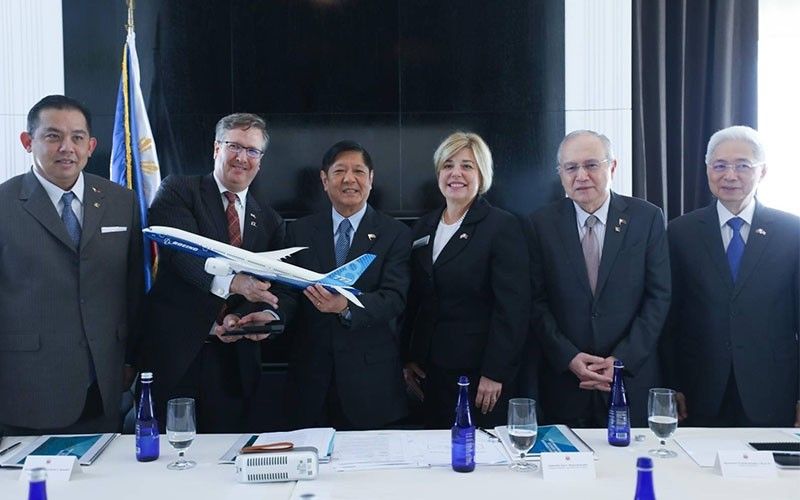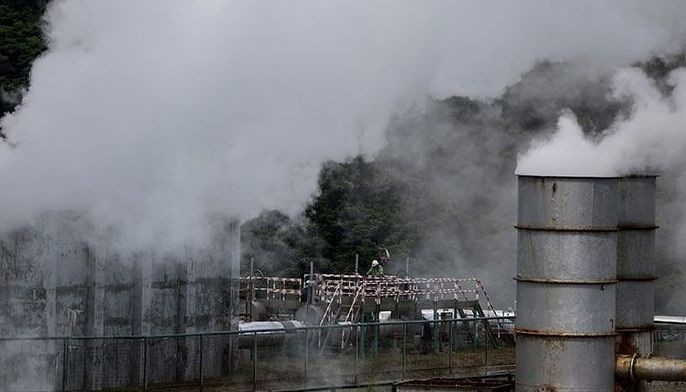New in Marcos' nuclear push: US firm seeks site in Philippines for 'costly' small reactors

MANILA, Philippines (Corrected, May 3; 10:33 a.m.)— A top nuclear energy firm from the United States that has been developing a type of nuclear reactor flagged for being potentially financially risky as renewable energy becomes more affordable has expressed interest in putting up a site in the Philippines.
This comes as President Ferdinand "Bongbong" Marcos Jr. takes his aggressive nuclear energy push to talks with US officials during his visit there this week — an agenda backed by his cousin House Speaker Martin Romualdez but roundly criticized by environmental groups.
NuScale Power's project could provide 430 megawatts of electricity to the country by 2031 and have an investment value of around $6.5 to $7.5 billion, according to estimates by its local business partner.
NuScale Power’s small modular reactor (SMR) technology is the only one to receive design approval from the US Nuclear Regulatory Commission.
The US Office of Nuclear Energy says in its website that the technolgy is "a key part of the [Department of Emnergy's] goal to develop safe, clean, and affordable nuclear power options." It said that SMRs have smaller physical footprints, are less expensive to build, and can be put up in areas that bigger and traditional nuclear power plants.
'Too expensive, too risky'
However, NuScale Power was flagged by independent think-tank Institute for Energy Economics and Financial Analysis in 2022 for developing SMR technology that is "too expensive, too risky and too uncertain."
The group also recommended that SMR "should be abandoned" given that the costs of available renewable sources are falling rapidly and that the SMR wouldn’t generate electricity before 2029.
Marcos is on a four-day trip to the United States that began last weekend, and he has so far met with US President Joe Biden and other business leaders, including executives of the energy firm.
According to the PCO, Marcos said the country has a "shortfall in power supply,” which could be addressed with the support of NuScale.
"We need everything. We just have to have everything and this new technology is something," the president said.
Clayton Scott, NuScale executive vice president for business, also expressed confidence that NuScale's small modular reactor (SMR) technology "will perform as expected." NuScale was also accompanied by local partner Enrique Razon, representing Prime Infrastructure Capital, Inc.
Marcos first met with NuScale executives in 2022 on the sidelines of the 77th United Nations General Assembly.
Among the deals clinched during Marcos’ meeting with US officials is the US Agency for International Development’s commitment to invest $5 million to support the Philippines' exploration of the potential for nuclear energy to meet the country's need for clean energy, "consistent with the highest standards of nuclear security, safety and nonproliferation."
Environmental groups' pushback
A financially unrewarding nuclear energy deal may not be the only risk posed by NuScale Power’s entry in the Philippines, according to environmental group Greenpeace.
Nuclear energy companies are "practically making the Philippines the guinea pig for untested risky technologies to promote their business" despite other local options for safer and cheaper renewable energy, Greenpeace campaigner Khevin Yu said.
Yu warned of the potential consequences of tapping nuclear energy for electricity in the Philippines given that Germany, like other developed countries, has weaned off nuclear power — an undertaking that it began in 2002 and was accelerated in 2011 after the Fukushima nuclear disaster in Japan.
Italy also permanently shut down all of its functioning nuclear plants in 2022.
Yu said that risks related to nuclear technology remain unresolved, and SMRs "are still untested and unproven."
"(And) there is currently no way to safely store nuclear waste," Yu said.
"Even if they actually succeed in putting up nuclear plants, it will take a long time before we are able to use it. Furthermore, we will be stuck with maintaining a ticking time-bomb, which will endanger the lives of nearby communities should an accident occur," Yu added.
Yu, meanwhile, pointed out that the pivot to renewable energy became a topic of discussion between Marcos and Bide, which he said should now "be the focus of the current administration."
(Editor's note: An earlier version of this article reported that NuScale would invest around $6.5 billion to $7.5 billion in the Philippines. This has been corrected after a representative of the company reached out for clarification. The Presidential Communications Office release that this was based on has also been corrected.)
- Latest


























